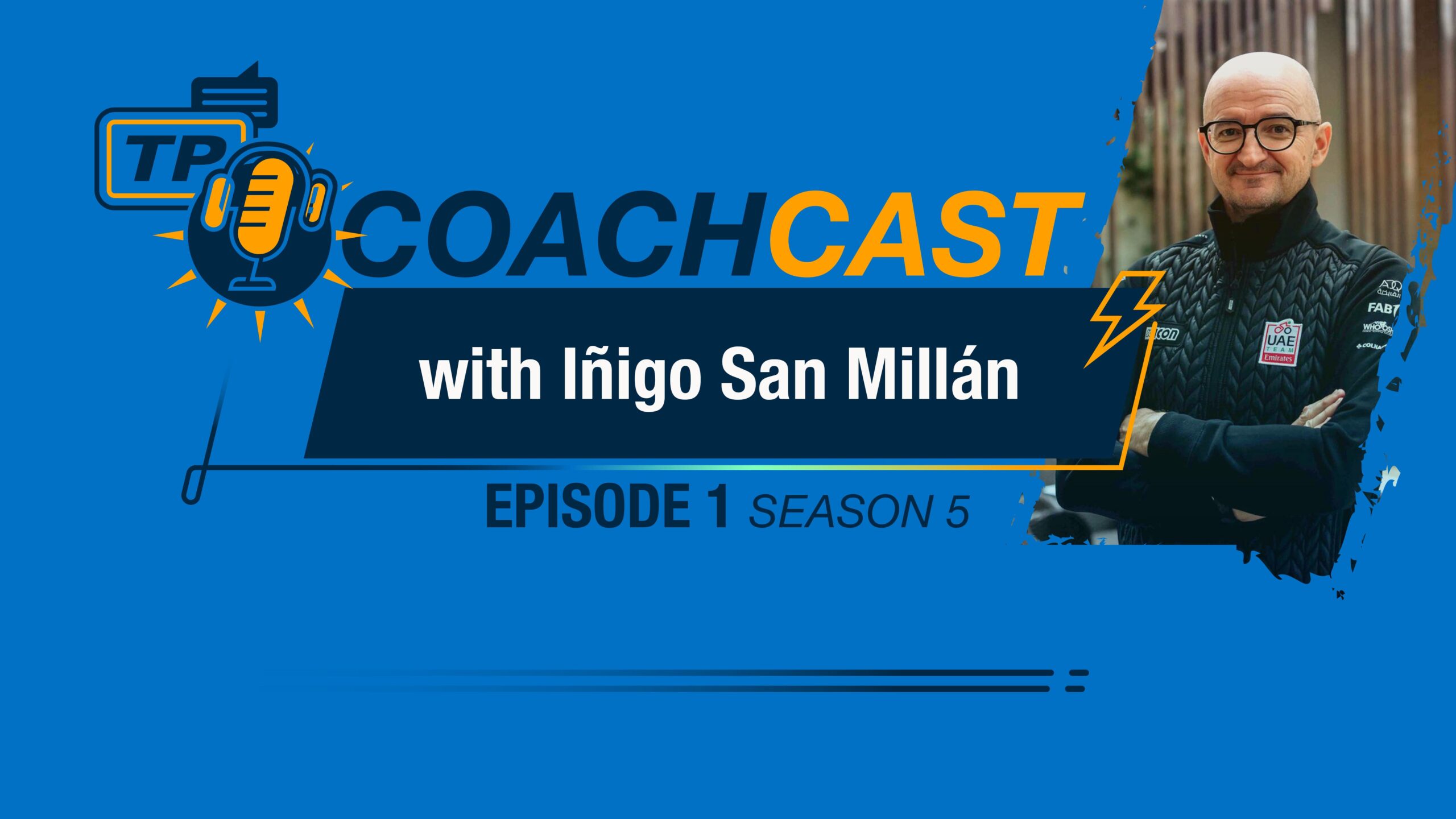Dr. Iñigo San Millán is a professor at the University of Colorado School of Medicine, performing clinical and research work in cellular metabolism, especially in diabetes, cardiometabolic disease and cancer. He has been testing and coaching world-class endurance athletes for over 25 years. He is also the Head of Performance for the professional cycling team UAE, where he is the personal coach of two-time Tour de France champion Tadej Pogačar.
San Millán’s focus for his athletes is training the biochemical systems to empower the biomechanical systems. Using lactate and heart rate as the guiding biomarkers, he has developed protocols to train various energy systems for the best performance possible.
Listen in as Dirk Friel asks for details on how these systems work, when a Zone 2 ride is no longer a Zone 2 ride and how to train effectively on only 10 hours per week.
Standout Quotes
“I always say that you cannot understand imperfection if you don’t know perfection in the first place. So perfection is the lead athletes. They have the perfect metabolism, the perfect mitochondria, right? And yet the nutrition is really high in carbohydrates. For example, they’re the only population that doesn’t develop type two diabetes or obesity overweight, yet they have the highest carbohydrate (intake). But they’re very efficient metabolically speaking, and everything happens in mitochondria. Then when I went to the School of Medicine, I was already thinking about how we can translate these concepts to people with chronic diseases like type two diabetes, metabolic health, metabolic syndrome and cancer metabolism.
They’re brilliant researchers and clinicians, and I started to look at and understand the metabolism of these patients. I saw right away that they were at the opposite metabolic pole as an athlete. So we could definitely learn. We have learned a lot of lessons from working with elite athletes that we can apply to populations with chronic diseases. Not only to understand more of the root of the pathogenesis of some of these diseases at the cellular level but also to come up with clinical programs where exercise is a big part of it.
So it’s a symbiotic relationship. And it’s been, for me, a very enriching process to be able to connect the dots.”
“That’s why it’s important to do some form of testing. And for that, I think once these lactate sensors come to market, they’re going to be a great guide and guidance for any athlete.”
“So when you have very high lactate levels for a while, you’re not going to burn fat. We also published last year that lactate also inhibits a transporter in mitochondria which is CPT1 and CPT2, which is the door through which fatty acids enter mitochondria. So when you’re messing up those energy systems constantly, and having very high lactate levels, even when heart rate goes down — that’s the thing to your question earlier about using lactate or heart rate — you can be in the cardiovascular phase of being recovered completely, but metabolically you’re still unstable.”
“I try to give (lactate threshold) information to an athlete based on what is, what are his or her main efforts, you know. Are you a marathon runner? Therefore your lactate threshold for the marathon is this pace right, or this heart rate or this lactate? Then you don’t need to worry so much about sprinting.
The thing is, why would you sprint if you’re a marathon runner? Are you ever going to sprint (in a) marathon? No. Right. So why would you spend that time when you need to spend time in other areas. For a cyclist, for example, we know that the majority of the races are won in the range between 10 and 20 minutes, in the climbs or time trials.
That’s why we’re (telling a rider) your lactate threshold for Zone 4 is this, for 15 to 20 minutes. And it depends again on the athlete and the different goals that they have and specialties within sport.”




